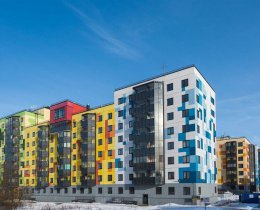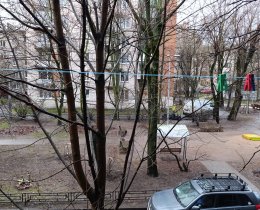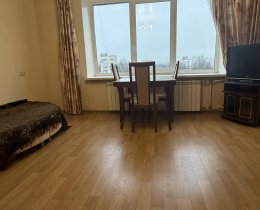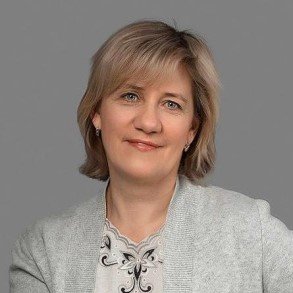The Boom in Credit
In total, Russians borrowed about $5 billion from banks and non-credit organizations in their quest to improve their housing conditions in 2005. Spread across the entire population, that means that every Russian is carrying a mortgage debt of $21. That's not a lot — the average Western European is carrying a mortgage debt that is about 1,000 times higher.
Taking into account the initial sum stumped up by buyers when using mortgages, credit was used to buy about 4 million square meters, with only about 10 percent of that figure involving new housing constructions.
That amounts to
In
Nevertheless, the mortgage market is expanding. Its mechanisms are being improved and the fields where credit can be employed are being expanded.
Those with medium range incomes are being attracted to mortgages as a realistic option, with humbler citizens consolidating communal apartments or trading in their single-room apartments for two rooms, and some receiving subsidies from the authorities in the process.
The profits to be made on these customers are not vast, but the potential volume of the market that they create is huge. This means that two processes are taking place in parallel — prices for housing are being pushed up and mortgages are turning from an exotic financial instrument (along the lines of underwriting or clearing) into a mass product.
Since the beginning of 2006, mortgages have for the first time begun to have a serious effect on the housing market.
The emerging middle class, then, is faced with a serious question: To buy now or to wait until the rush is over?
In
They differ in various ways: the amount of the initial payment or deposit, the time periods, the amount of the interest rate and, importantly in an environment with such a vast shadow economy, the conditions for establishing the income levels of borrowers.
On the
In new constructions, prices went up 1.1 percent in January, 2.2 percent in February and 3.5 percent in March. On the secondary market, prices steadily rose by 1 percent to 1.2 percent per month in November, December and January, with the pace rising to 1.5 percent in February and 3 percent in March.
"Nearly the whole world lives with mortgage systems and, for our citizens, acquiring a house or apartment of your own the price of which is several times your yearly income is now a reality," says Alexander Ginovker, director of the Nevsky Prostor real estate agency.
"According to the statistics, about 50 percent of the population wants to improve its housing situation, and 20 percent intend to do it through the use of mortgages," Ginovker says.














